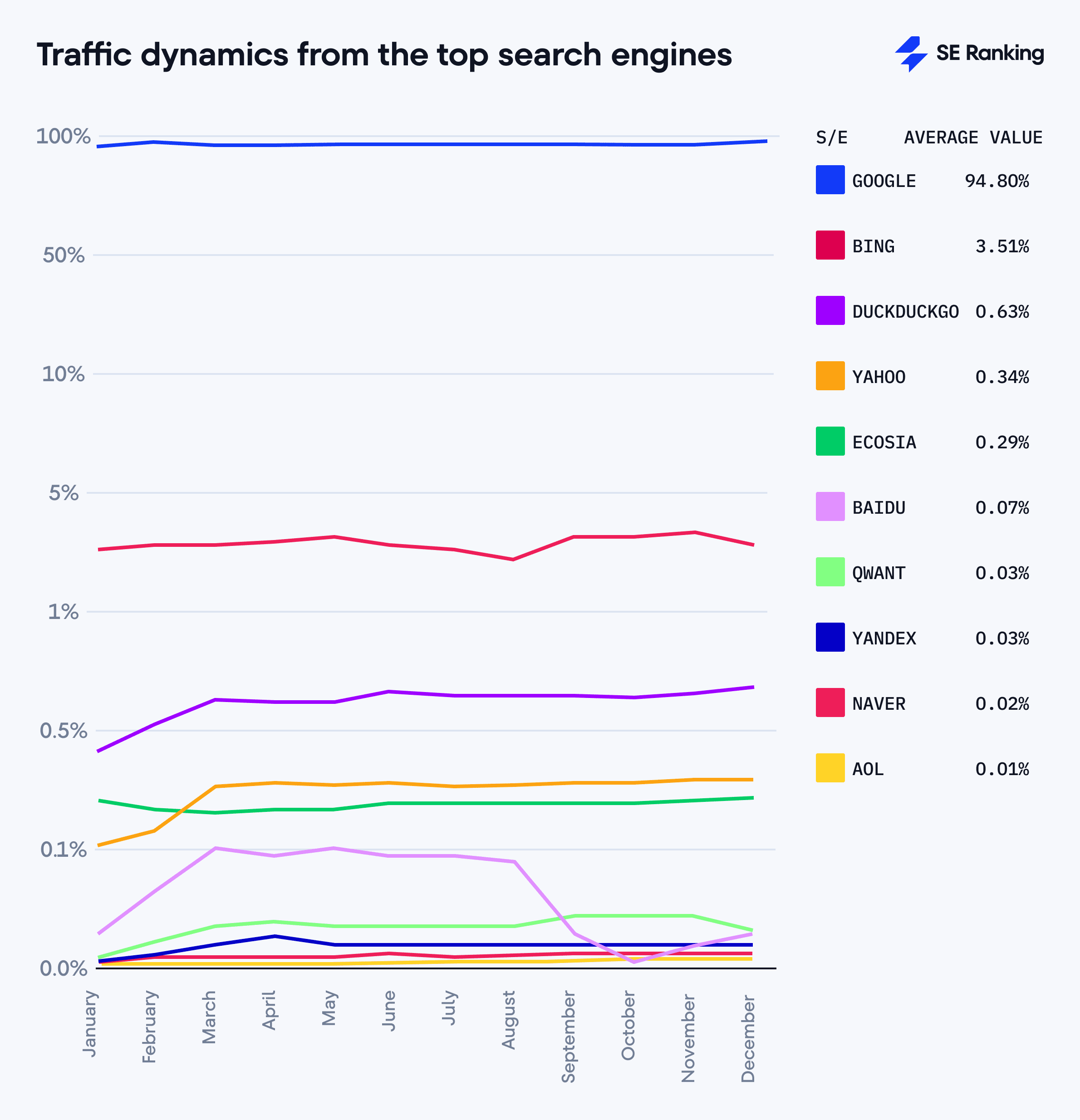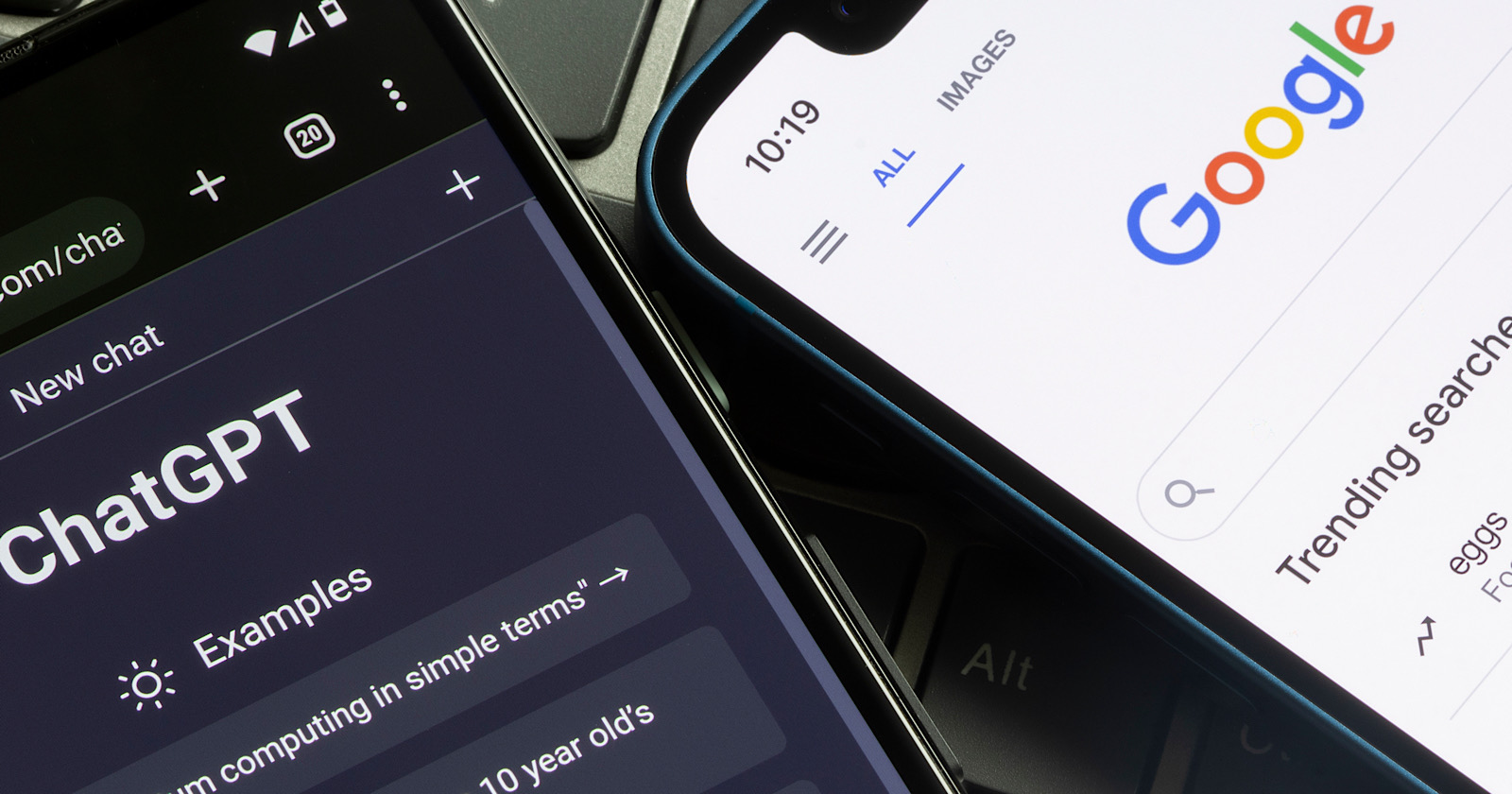Video summary:
Google is still the leading search engine, but new data shows the market is changing.
A study of 13,700 websites by SE Ranking found that Google generated an average of 94.8% of organic traffic last year.
At the same time, ChatGPT and Perplexity are showing up more in referral traffic reports, which means they’re gaining traction.
The Numbers You Need to Know
- Google’s Slide: Dropped 0.91% annual market share but still owns 94.8% of organic traffic.
- Bing’s Quiet Win: Gained 0.17% (3.51% total), cementing its #2 spot.
- Underdogs Rising: DuckDuckGo (+0.21%), Yahoo (+0.27%), and privacy-focused Qwant (+0.03%) all inched upward.
- AI’s Breakthrough: ChatGPT referrals jumped 0.09%. Perplexity grew steadily but stayed under 0.02%.
Regional Battles
- US/UK: Google dominates (91% US, 93.5% UK) but lost nearly 3% in both markets.
- Bing’s now pulling ~5% in both.
- Europe: Local heroes like France’s Qwant (0.44%) and Germany’s Ecosia (1.12%) outperformed global averages.
 Screenshot from: seranking.com/blog/top-search-engines/, February 2025.
Screenshot from: seranking.com/blog/top-search-engines/, February 2025.What This Means
This data shows that Google is still the leader in organic search, but trends indicate a change is coming.
As AI answers become more sophisticated, their share of referral traffic may grow. Google’s crown remains secure for now, but the search wars may look radically different this time next year.
Don’t depend only on Google for your traffic. It’s time to diversify your SEO strategy.
Watch also: How To Win Visibility In The New Landscape Of SEO
Methodology
SE Ranking analyzed aggregated Google Analytics data from 13,700 sites, excluding social/Youtube and focused on US, UK, DE, FR, ES, and NL markets.
Featured Image: Tada Images/Shutterstock





![[SEO, PPC & Attribution] Unlocking The Power Of Offline Marketing In A Digital World](https://www.searchenginejournal.com/wp-content/uploads/2025/03/sidebar1x-534.png)